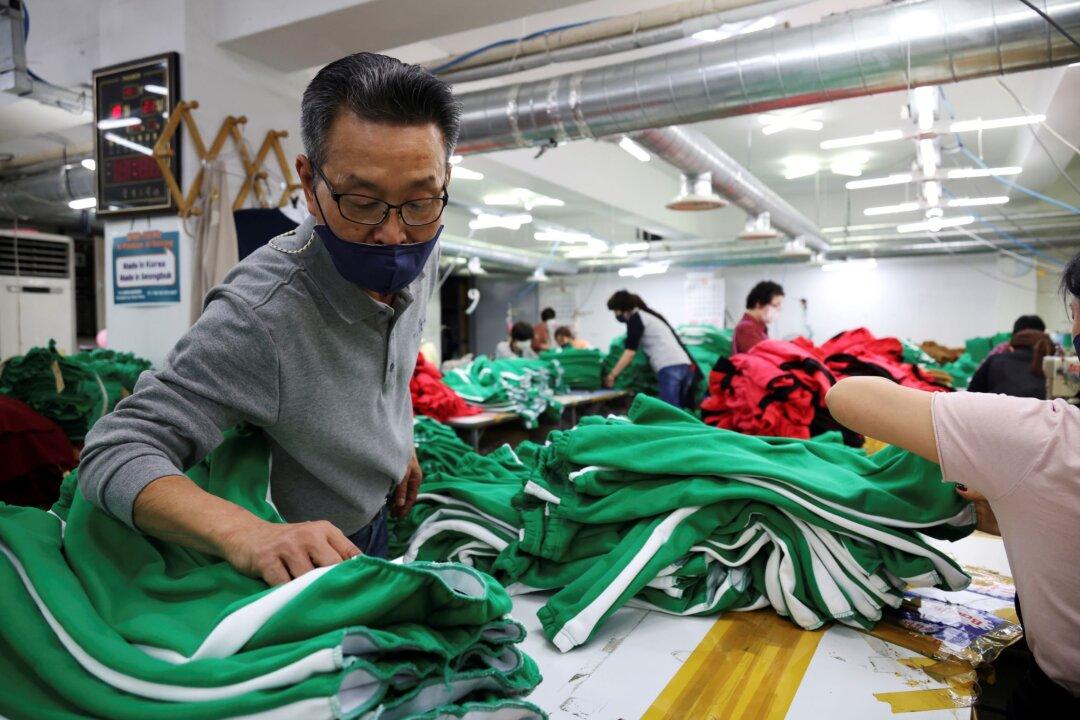SEOUL—The “Made in Korea” green tracksuits and pink jumpsuits worn by characters in Netflix’s global hit “Squid Game“ have proven a pre-Halloween bright spot for a South Korean garment industry struggling during the pandemic.

Ko Jong-hyun, 59, a clothing factory owner, checks newly made tracksuits inspired by Netflix series "Squid Game" at his plant in Seoul, South Korea, on Oct. 21, 2021. Kim Hong-Ji/Reuters
|Updated:




